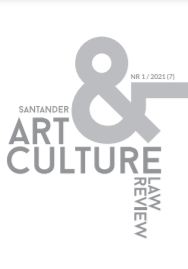Polska kultura łowiecka jako niematerialne dziedzictwo kulturowe
Polish hunting culture as intangible cultural heritage
Author(s): Miłosz Kościelniak-MarszałSubject(s): Museology & Heritage Studies, Recent History (1900 till today), Sociology of Culture, Environmental interactions
Published by: Wydawnictwo Uniwersytetu Jagiellońskiego
Keywords: hunter; hunting; tradition; cultural heritage; language of hunting;
Summary/Abstract: Towards the end of the Middle Ages, hunting based on the knightly ethos became an important part of court culture and, in the following centuries, became an integral part of life for the Polish landed gentry. Despite foreign (particularly German) influence, it retained its distinctive and national character, and was one of the factors that helped shape national identity during the Partitions and the Second Polish Republic. Attempts to eradicate its legacy were made during the Communist era, yet the hunting culture survived and was successfully reconstructed in the 1990s, becoming a source of shared identity for over 120 thousand hunters and their families. Polish hunting culture combines principles of ethical behaviour towards nature, especially towards humans and animals, with a unique language and extensive socio-cultural practices, including both religious and secular customs, rituals and ceremonies. Its manifestations can be found in literature and the arts, especially visual arts and theatre. It also appears in music, performed both during hunting expeditions and on special occasions. Linked to the Polish hunting culture is a distinctive cuisine, which follows with the cycle of nature and is based on venison and fruits from the forest. Last but not least, it also includes breeding and raising hunting dogs (especially typically Polish hunting breeds) and birds of prey. Polish hunters, aware of the values inherent in the hunting culture, actively follow historical traditions. It contributes to the preservation of this unique community culture, rooted in the country’s history and thus constitutes intangible heritage.
Journal: Santander Art and Culture Law Review
- Issue Year: 7/2021
- Issue No: 1
- Page Range: 119-144
- Page Count: 26
- Language: Polish

